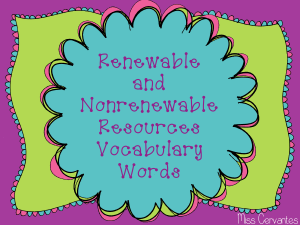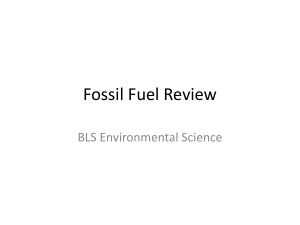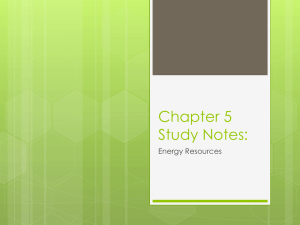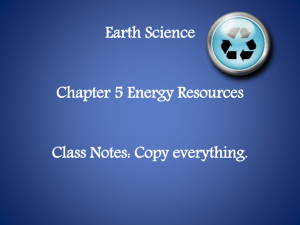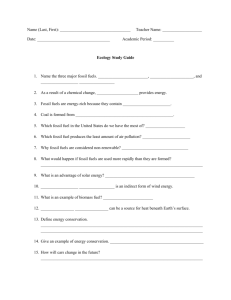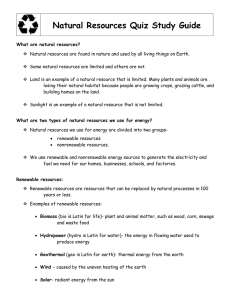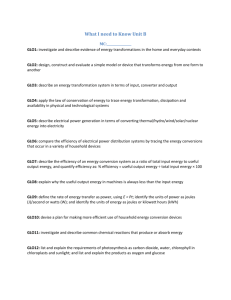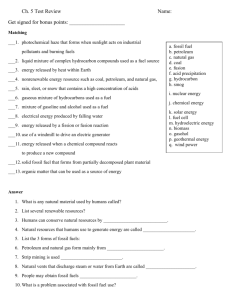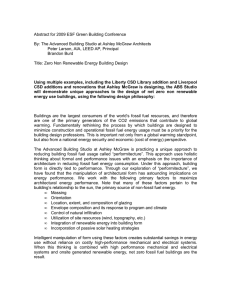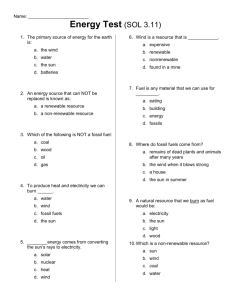S6E6: Students will describe various sources of energy
advertisement
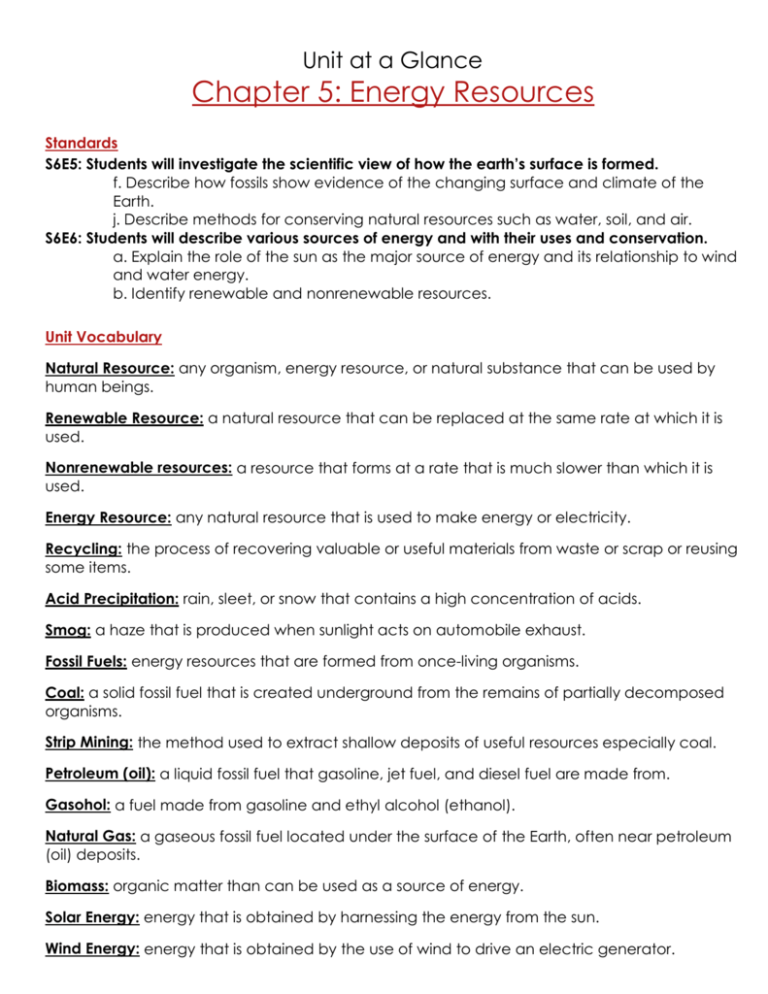
Unit at a Glance Chapter 5: Energy Resources Standards S6E5: Students will investigate the scientific view of how the earth’s surface is formed. f. Describe how fossils show evidence of the changing surface and climate of the Earth. j. Describe methods for conserving natural resources such as water, soil, and air. S6E6: Students will describe various sources of energy and with their uses and conservation. a. Explain the role of the sun as the major source of energy and its relationship to wind and water energy. b. Identify renewable and nonrenewable resources. Unit Vocabulary Natural Resource: any organism, energy resource, or natural substance that can be used by human beings. Renewable Resource: a natural resource that can be replaced at the same rate at which it is used. Nonrenewable resources: a resource that forms at a rate that is much slower than which it is used. Energy Resource: any natural resource that is used to make energy or electricity. Recycling: the process of recovering valuable or useful materials from waste or scrap or reusing some items. Acid Precipitation: rain, sleet, or snow that contains a high concentration of acids. Smog: a haze that is produced when sunlight acts on automobile exhaust. Fossil Fuels: energy resources that are formed from once-living organisms. Coal: a solid fossil fuel that is created underground from the remains of partially decomposed organisms. Strip Mining: the method used to extract shallow deposits of useful resources especially coal. Petroleum (oil): a liquid fossil fuel that gasoline, jet fuel, and diesel fuel are made from. Gasohol: a fuel made from gasoline and ethyl alcohol (ethanol). Natural Gas: a gaseous fossil fuel located under the surface of the Earth, often near petroleum (oil) deposits. Biomass: organic matter than can be used as a source of energy. Solar Energy: energy that is obtained by harnessing the energy from the sun. Wind Energy: energy that is obtained by the use of wind to drive an electric generator. Unit at a Glance Hydroelectric Energy: electrical energy that is produced by the use of falling water. Nuclear Energy: energy that is produced through the splitting (fission) or combining (fusion) of atoms. Geothermal Energy: energy that is produced by harnessing the heat that is produced from within the Earth. Essential Questions How do "fossils" turn into fossil fuels? What are some problems associated with the use of fossil fuels? What other natural resources can be used to produce clean, renewable energy?
